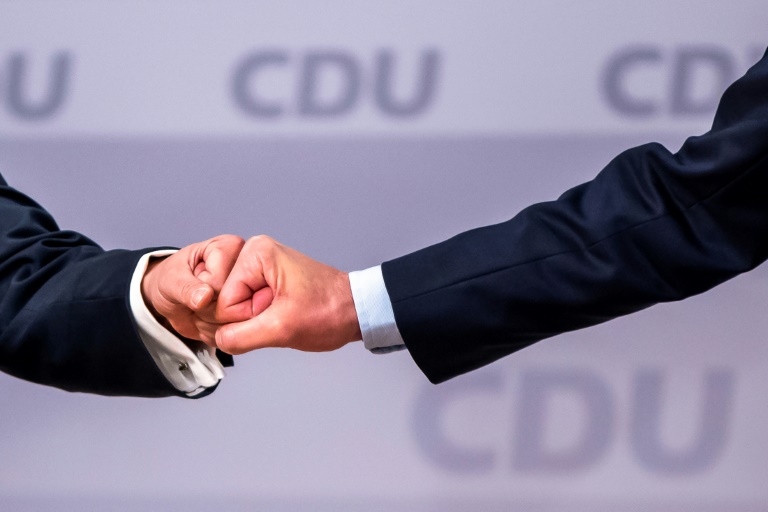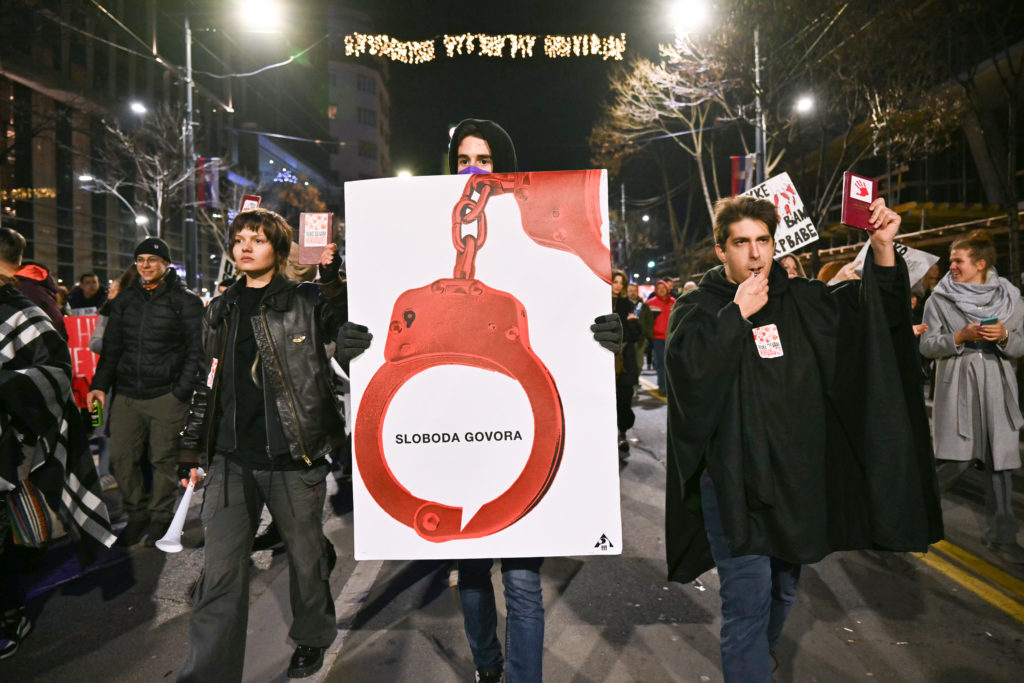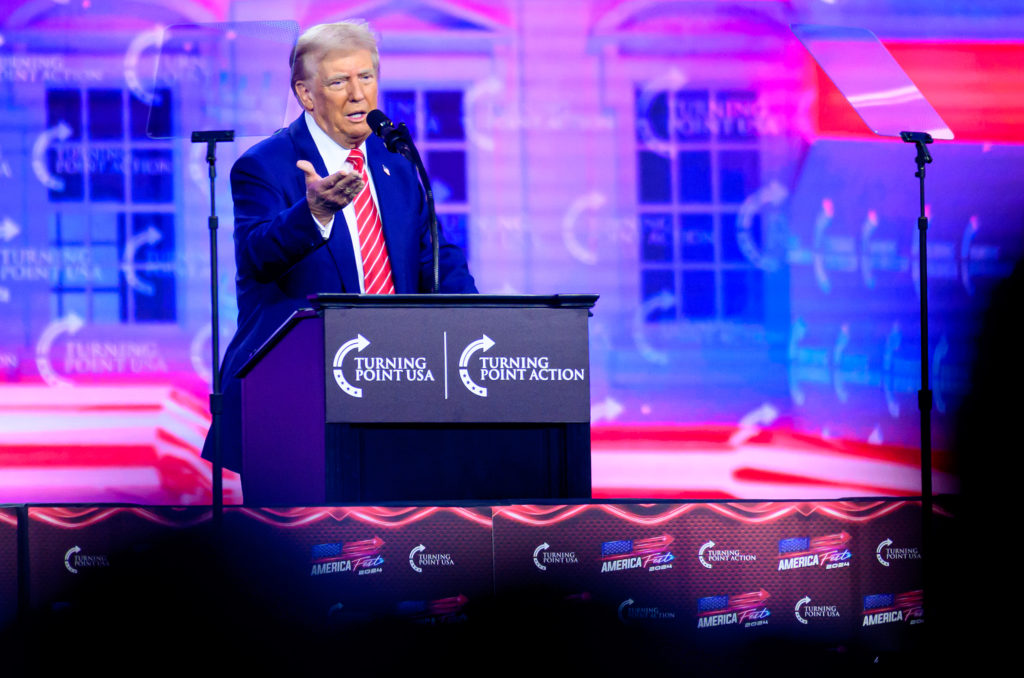German conservatives will unveil Monday a plan to win voters in a future without Angela Merkel, as chancellor candidate Armin Laschet looks to extend his lead ahead of September’s election.
Laschet, the head of Merkel’s Christian Democratic Union (CDU), and Markus Soeder, the leader of the smaller Bavarian Christian Social Union (CSU), are to present the alliance’s manifesto together after months of damaging in-fighting.
A public spat between the two over who would be chancellor candidate has been one of several setbacks for the bloc in the run-up to voting on September 26 — the first election in 16 years not to feature Merkel.
But the conservative alliance has gained momentum in recent weeks, bringing home a thumping win in a key regional election and now polling on around 28 percent, ahead of the Greens in second place with about 21 percent.
Laschet and Soeder appeared together in public Sunday in a show of unity ahead of a final meeting to finalise the details of their election platform.
“Certainly there were a few moments in recent months where we were in dispute, but we are now on course together,” Soeder said.
– Life after Merkel –
The CDU-CSU alliance, also known as the Union, has dominated German politics for 70 years but faces a struggle to rebrand itself without Merkel, who despite many ups and downs remains immensely popular.
“For a long time, Merkel alone was the Union’s manifesto,” the Bild daily wrote recently, suggesting that Laschet had been “rushing from meeting to meeting” in a scramble to finalise a new strategy for the alliance.
The conservatives have faltered as Merkel prepares to bow out, provoking anger over the government’s pandemic management and a corruption scandal involving shady coronavirus mask contracts.
For several weeks earlier this year, they lost their customary lead in the polls to the Greens, who surged following the nomination of their chancellor candidate Annalena Baerbock.
But a poll for the RTL broadcaster last week also had Laschet as Germany’s top pick to replace Merkel on 23 percent, ahead of Baerbock for the first time since they both threw their hats in the ring.
Laschet has long been a close ally of Merkel and has pledged to continue the chancellor’s moderate centrist course.
According to a draft seen by German media, the new manifesto will adhere to economic foundations of the conservative dogma — no tax hikes and a no-new debt rule.
Ahead of the meeting on Sunday, Laschet said tax hikes would be “poison” for Europe’s biggest economy and called for a “decade of modernisation”.
– Climate wars –
The manifesto also reportedly includes a plan to increase pension payouts for those who work longer — a proposal met with fierce criticism from the left.
On foreign policy, it reportedly rejects EU membership for Turkey and calls for a united front by Europe and the United States against China.
But it is the conservatives’ climate programme that might be most closely scrutinised given that the Greens are shaping up to be their closest competitor but also a potential coalition partner after the vote.
After Baerbock said petrol prices should rise, Laschet replied that the “energy transition must be socially acceptable”.
Soeder also attacked the Greens in an interview with the Bild am Sonntag newspaper, accusing them of scoring “one own goal after another”.
“Instead of making policies for the centre, they are turning into the party of flight bans, speed limits and tax increases,” he said.
Critics were already lining up against the conservatives for failing to take real action for the climate.
“For the Union, no one needs to change their lives,” noted Die Zeit weekly.
The Tagesspiegel daily charged that “anyone reading the proposals on climate policies would not immediately realise it is a battle against a human catastrophe”.











